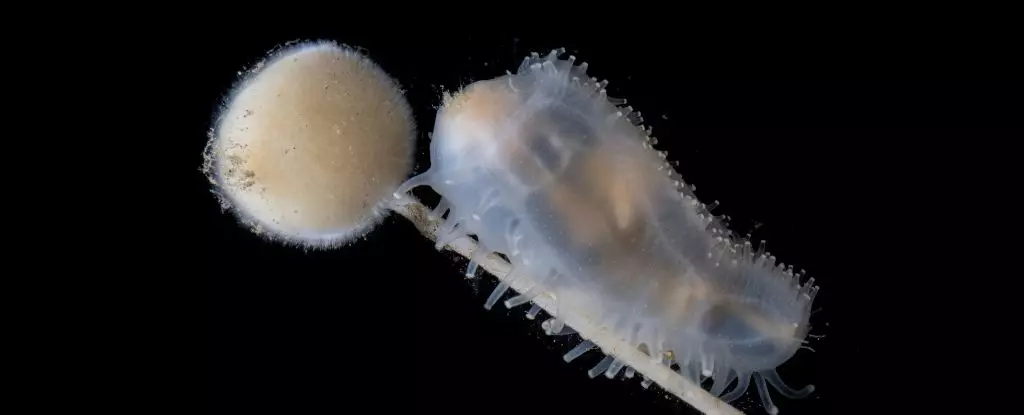In a remarkable expedition that not only expands our understanding of marine biology but also underscores an urgent need for environmental stewardship, the Schmidt Ocean Institute’s research vessel, Falkor (too), embarked on a 35-day mission that revealed the breathtaking biodiversity surrounding previously undocumented hydrothermal vents in the South Sandwich Islands. These locations, often regarded as the forgotten corners of our planet, are home to ecosystems that thrive in one of the harshest environments on Earth—the deep ocean. As these discoveries emerge among the waves, we are simultaneously reminded of the fragility of these marine ecosystems in the face of relentless challenges, from climate change to deep-sea mining.
What makes this expedition even more significant is the diversity of life captured on film, including vivid vermillion coral gardens and extraordinary specimens previously unknown to science. The visual material brought back allows the public to witness a world that remains hidden beneath icy waters—an urgent call for protection of these unique habitats. It is a stark contrast to the often bleak narrative surrounding climate change; amidst the warnings and threats, there is still miraculous life pushing through the darkness.
The Fight Against Ignorance
Such rich ecosystems highlight a bittersweet reality: the world is still learning about its oceans, yet we are racing against time. Marine biologist Michelle Taylor aptly points out that this endeavor is essential to accelerate our understanding before ecosystems vanish under the weight of an adverse human impact. Her sentiments reflect a growing concern among scientists and activists alike that the beauty revealed by this expedition could easily be lost if we fail to act decisively and urgently.
The revelation of unique species—like the stunning nudibranch photographed at nearly 300 meters deep—serves as a reminder that our ignorance of the ocean’s depths is significant. For too long, the vast majority of humanity’s attention has been focused on terrestrial issues, while the intricate life forms beneath the surface have gone largely unnoticed. In a moment where every inch of land and sea is scrutinized, it is concerning to realize we are only beginning to grasp the enormity of what remains unexplored.
The Need for Responsible Exploration
With the exhilarating rush of discovery comes an equally pressing weight of responsibility. The expedition encountered diverse marine life stretching from majestic colossal squids to mysterious fish species bearing parasitic copepods. Each new find should ignite a sense of awe and inspire us to protect these ecosystems from the selfish exploitation that can follow when opportunities for profit arise. We are faced with the dual challenge of furthering research while safeguarding marine habitats from those who might see them merely as resources to be mined.
While this expedition unveils majestic underwater vistas, such beauty is at risk. The video footage of thriving hydrothermal vents serves as a call to action. As we set our sights on the economic transformation of ocean spaces, we must reshape what it means to engage with the sea—switching from a resource-extraction mindset to one that prioritizes sustainability and education.
Humanity’s Role in Marine Conservation
As we dissect the implications of these historical exploits, one can’t help but draw parallels between our responsibilities as stewards of the planet and the narratives of exploration. Beyond the sheer wonder of new species and habitats, this expedition serves as a powerful allegory for broader conservation efforts. The contrast between breathtaking discoveries and the encroaching shadow of climate change cannot be underestimated. The ocean’s health is inseparably intertwined with our own; as we stand at the crossroads of exploration and exploitation, we must commit ourselves to marine environmentalism that embraces corporate responsibility and humane practices.
In the end, this brilliant expedition did not merely uncover the miracles of the Southern Ocean; it ignited a crucial dialogue about stewardship. The vibrant ecosystems revealed need champions. They demand our attention, for they are not just subjects of wonder, but the living entities that contribute to the balance of life on Earth. As a society, we must recognize that our time to act is now, lest we lose the treasures these depths so quietly offer.

